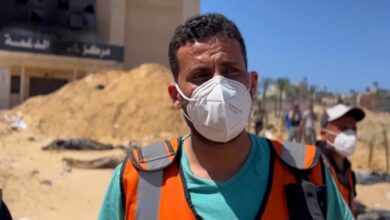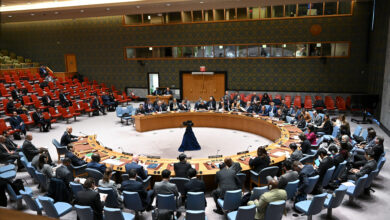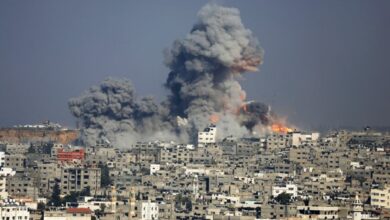Children and young people are extremely vulnerable when a natural disaster strikes. When an earthquake hit Haiti last year, 80 percent of the schools in Port-au-Prince where destroyed or severely damaged, and when an earthquake hit China in 2008, more than 10,000 children were killed. Although Egypt has not experienced any large-scale disaster for many years, the country is located on a fault line which could be disrupted by an earthquakes or severe weather changes.
That is why, on the occasion of the celebration of the International Disaster Reduction day, the UN is teaching Egyptian youth how to cope with the risk of disasters.
“Children and young people are capable of much more than you would imagine. In case of an emergency, they can’t just sit around waiting for their teacher to tell them what to do. They have to know how to react appropriately,” explains Amjad Madani Abbashar, head of the UN regional office for Arab States.
He refers to the case of a Japanese schoolboy who opened a window and helped his classmates evacuate as an earthquake struck earlier this year.
Japanese children take classes of risk reduction, and although that is not necessarily a good idea for Egyptian schools, children and young people should learn more about dealing with potential disasters, Abbashar says. And it’s not just a matter of knowing how to evacuate; it’s also a matter of prevention.
“Often the people themselves have the best idea of what is needed to be safe, and therefore preventing disaster is also about listening to people and taking their voice seriously,” Abbashar says.
In Egypt, workshops are organized in schools to educate responsible students, who are, in turn, charged with educating the rest of the classroom on safety measures.
The UN has produced special textbooks regarding the subject and has also launched an online game, where older children and young people can try their hand at dealing with risk reduction in different cities worldwide, according to Berta Acero, who is a communication officer at the UN International Strategy for Disaster Reduction.




